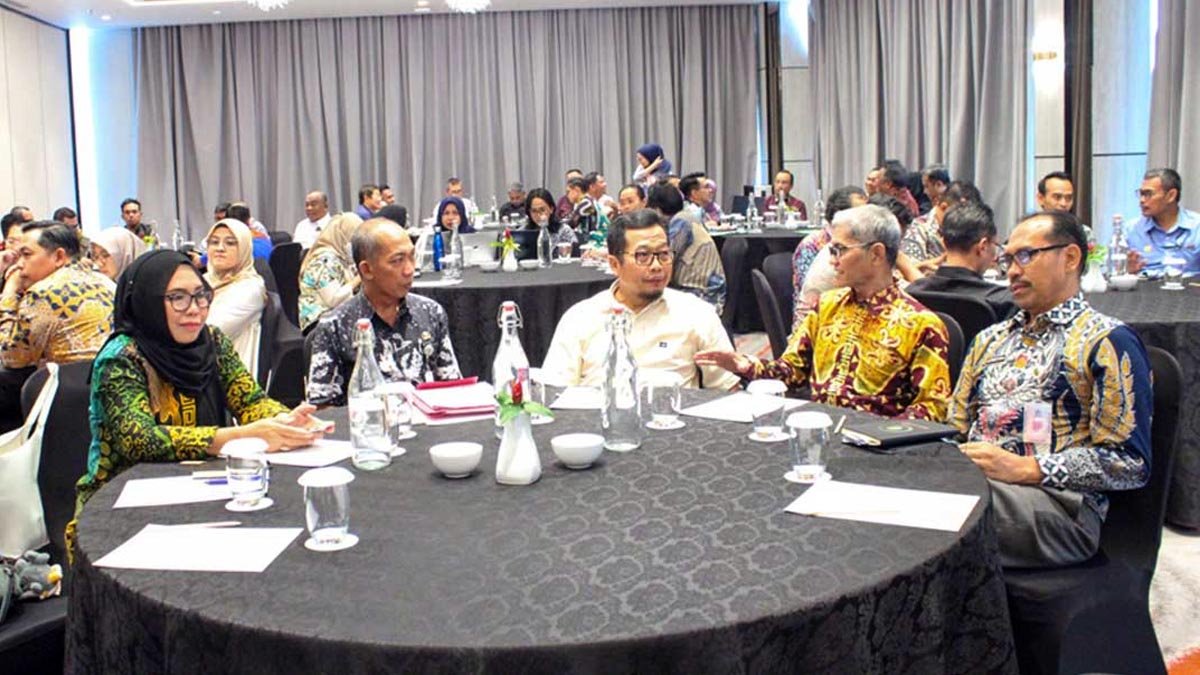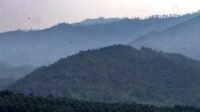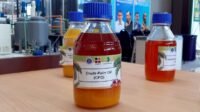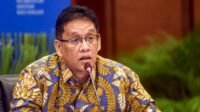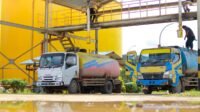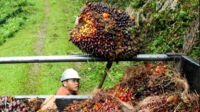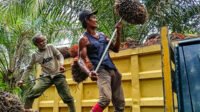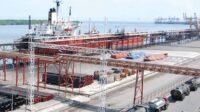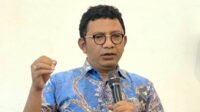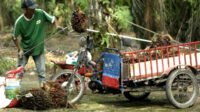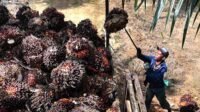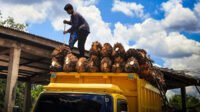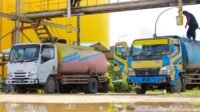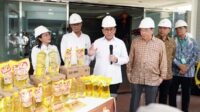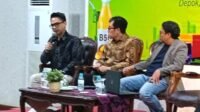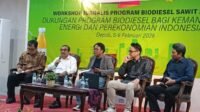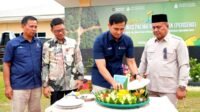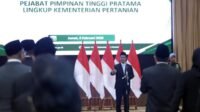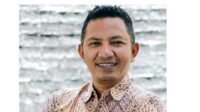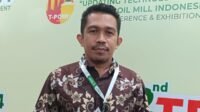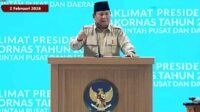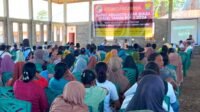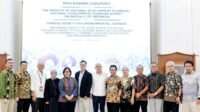PALMOILMAGAZINE, SAMARINDA — East Kalimantan has reaffirmed its commitment to sustainable palm oil as a cornerstone of its transition toward a green economy. This commitment was underscored during the First Round of the Regional Stakeholder Consultation Forum (Forum Konsultasi Daerah/FKD), held Thursday at Hotel Mercure Samarinda. The forum focused on the palm oil sector—one of the 15 priority economic activities identified in the province’s broader shift from extractive to sustainable economic systems.
The event was organized by the East Kalimantan Provincial Plantation Agency (Disbun), in collaboration with the German development agency GIZ (Deutsche Gesellschaft für Internationale Zusammenarbeit) and the East Kalimantan Regional Development Planning Agency (Bappeda Kaltim). The strategic dialogue brought together more than 50 stakeholders, including local government officials, palm oil industry representatives, academics, NGOs, labor unions, farmer groups, and community organizations.
Wahyu Gatut Purboyo, Head of the Economic and Natural Resources Division at Bappeda Kaltim, emphasized in his opening remarks that palm oil should no longer be viewed merely as an export commodity. “Palm oil is now a key pillar in the transition from an extractive economy to a sustainable and just economy,” he stated, as quoted by Palmoilmagazine.com from the Provincial Plantation Agency on Sunday (July 28, 2025).
Also Read: PalmCo CEO Highlights Challenges in Palm Oil Sector, Urges Collaboration and Digital Transformation
The forum, moderated by Iwied Wahyulianto of GIZ Sustain Kutim, also highlighted the need for social justice throughout the transition process to ensure no group is left behind.
In a keynote address, Acting Head of the Plantation Agency, Andi Siddik, stressed the importance of strengthening farmer institutions, improving human resource capacity, and integrating the palm oil supply chain from upstream to downstream.
“This transformation is not just about boosting production—it’s about ensuring sustainability at every level, from smallholders to major corporations,” Andi noted.
He added that well-managed palm oil development could enhance value-added opportunities while providing equitable economic benefits and preserving environmental integrity.
The First Round of FKD served as a strategic platform for gathering cross-sectoral perspectives. Participants included representatives from the Indonesian Palm Oil Association (GAPKI), Triputra Agro Persada, smallholder groups, banking institutions, academics, and civil society organizations focused on sustainability.
With such broad participation, the East Kalimantan Provincial Government hopes this initial discussion will lay the groundwork for more technical deliberations in the upcoming Second Round of FKD.
“Synergy and collaboration are key. We aim for an inclusive palm oil transformation that delivers real impact for all, especially smallholders and vulnerable communities,” Andi concluded. (P2)

